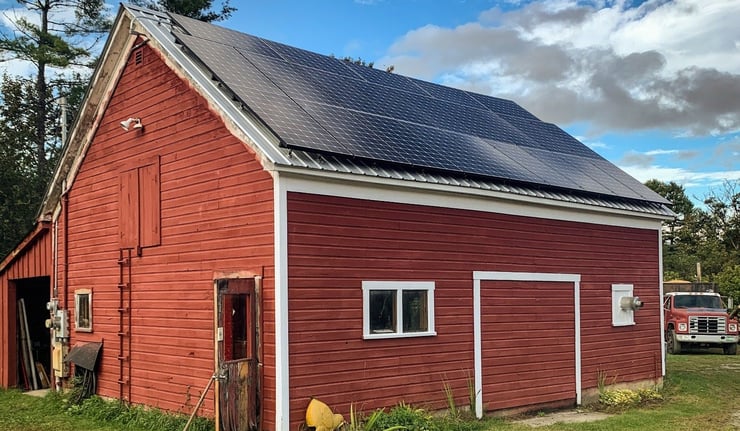Not sure what the best solar panel brands are? Our solar experts are here to help you understand what to look for when picking the best solar panels.
 Not all solar panels are the same. Just like buying a car, there are many factors that influence the performance of one panel over the other. Here are some factors to consider when learning about quality solar panels.
Not all solar panels are the same. Just like buying a car, there are many factors that influence the performance of one panel over the other. Here are some factors to consider when learning about quality solar panels.
Solar Panel Warranties
An easy place to start with solar is to check the warranty—it’s a sign that the manufacturer has tested their product and stands behind its quality.
“We choose brands with great reputations in the solar energy market and really good warranties,” says Ben McFeeters, Senior Journeyman Electrician. “And they're large, well-known companies that are not going to go anywhere. We know that 20-plus years from now, they’re going to be around, and that warranty will be honored.”
There are two types of warranties on solar panels, product warranties, and production warranties.
The product warranty covers the physical form of the panel, for instance, if there’s damage right out of the box or bad wiring. The production warranty covers the lifetime output of the module.
For most of our residential projects, Green Mountain Solar uses panels that have both 25-year product and production warranties. Some commercial projects opt for a panel with a lower product warranty to keep costs down since these arrays tend to be much larger than your average home system.
Solar Panel Degradation
A production warranty is important, but what exactly does it guarantee? The short answer: A good warranty will ensure minimal degradation over the lifespan of the solar panel.
What is solar panel degradation? Just like any technology, solar panels lose some function as time goes on. The quality difference between brands is how much function over time.
For example, a 25-year performance warranty will guarantee your panels' performance for 25-years. Our standard LG offering will guarantee 90.6% of day-one production at year 25. This equates to roughly 0.3% annual degradation meaning that you’ve only lost 9.4% of power production after 25 years. The panels we use also offer linear performance warranties ensuring that the degradation is not accelerated over time.
If you see a degradation warranty that’s lower, that means the panel will have lower production at the end of 25 years.
Even relatively small variations in panel production can impact your return on investment over time. A panel with a better degradation warranty may cost more up-front, but it may offer more value over the life of your system.
Ben also adds, “With a lower quality panel, you might get something called potential induced degradation. It’s when the power leaks out into the frame of the panel. This will degrade the cells faster. You'll get cracking cells and short circuits inside the panel. The back sheet might delaminate. Things like that.”
All of this is to say: With solar, you get what you pay for. Sure, there are cheap panels on the market, but the longer they last, the better your return on investment will be.
Solar Panel Questions to Ask
- What is the panel warranty and degradation?
- Why is your price higher or lower than other quotes I’ve received? When you’re shopping around for quotes and the offer seems too good to be true, look into what panels they’re using. Sometimes, new companies just entering the market will skimp on quality products to get their business off the ground and save a few bucks.
- How often do you get dud panels during installation or have to replace panels later?
- Are these panels built by robots? (That can indicate a higher-quality product because there’s less opportunity for human error and breakage.)
In the end, we’d argue that picking the right installer is just as important as picking the right solar panels. “Your installer should be able to explain the ins and out of your solar panel to you,” says Paul Lesure, President of Green Mountain Solar. “It’s important that your installer answers all of your questions before you start slapping panels on your roof so that you’re satisfied with the final result and will have reliable solar production for years to come.”
By Ariel Kent

Leave a Comment